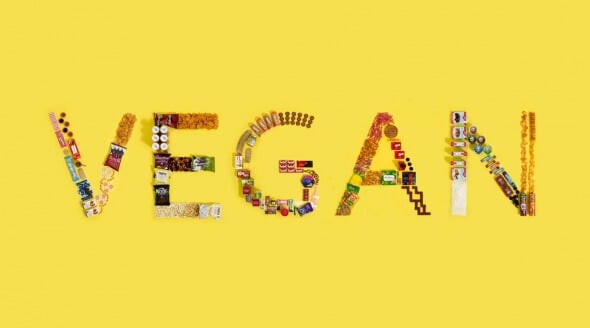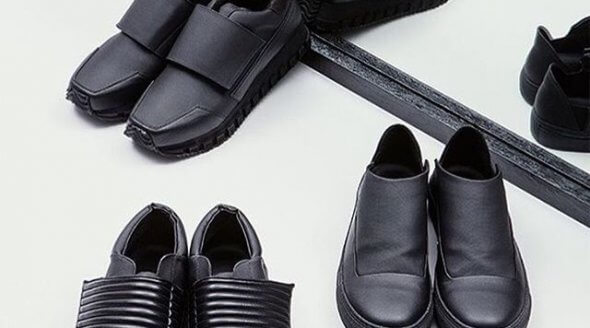8 Things You Never Realised Were Made From Animals
Could there be sneaky animal-derived items lurking among your possessions?
Many people who would never dream of wearing fur, eating meat, or supporting animal testing don’t realise that their make-up bag or cleaning cupboard could be harbouring products made in ways that harm animals.
Read on to learn what to look out for – and how to find ethical, vegan versions of everything you need!
False Eyelashes
Eyelash extensions are sometimes made from mink fur – and yes, it’s likely to come from animals imprisoned on the exact same squalid, filthy fur farms that supply the fashion industry.
Avoid cruelty: stick to wearing your own fur. And if you want to glam up, always choose synthetic eyelash and eyebrow extensions.
https://www.facebook.com/OfficialPETAUK/videos/1183789521669153
Paintbrushes
Watch out for art brushes made from animal hair: sable brushes, for example, are usually made from weasels’ tails, while others may contain hog bristles, squirrel fur, pony hair, hair from cows’ ears, or even mongoose fur. Whether these animals were farmed or hunted, you can bet there was suffering involved.
Avoid cruelty: be a compassionate Caravaggio! Synthetic brushes are widely available in all shapes and sizes. Good art-supply shops should be able to advise you about the best vegan-friendly brush for your project – and also help you steer clear of other animal-derived materials, such as squid inks and bone charcoal.
Lipstick and Red Food Colouring
Crimson dyes – whether used in food or make-up – are sometimes made from crushed bugs. It’s as unappetising as it is unethical.
Avoid cruelty: check the ingredients before you buy, and steer clear of anything that contains cochineal, carmine, or E120.
Shaving and Make-Up Brushes
The bristles of badger shaving brushes usually come from China, where there are virtually no laws safeguarding animal welfare. And as with paintbrushes, cosmetics brushes may be made from the hair or fur of pigs, minks, squirrels, or other species – and none of them gave it up willingly.
Avoid cruelty: pamper your skin without causing an animal to lose theirs – synthetic brushes tend to be softer and easier to clean anyway.
Pillows
Ever thought about what’s inside your pillows? If they have feather stuffing, it could be the result of live plucking, which is when fully conscious ducks and geese are pinned down while workers rip out their feathers by the fistful. It’s as painful and terrifying as it sounds.
Avoid cruelty: choose synthetic-stuffed bedding. In addition to being kinder to animals, it’s usually allergen-free, too.
https://www.youtube.com/watch?v=PurYHsEZXu0
Feather Dusters
In South Africa, the throats of young ostriches are slit so that their skin and feathers can be sold around the world, including to make feather dusters. It’s a sad and unnecessary fate for such interesting and intelligent birds.
Avoid cruelty: dust off cruelty as well as cobwebs by choosing a cheap and cheerful duster made from microfibres or other synthetic yarns.
Stringed Musical Instruments
Traditional manufacturing methods for violins, violas, and cellos include a number of grisly ingredients, such as glue made from boiled-up animal hides, strings made from intestines, and bows made from horses’ tails and tipped with bone.
Avoid cruelty: exciting innovations such as carbon-fibre cellos make it easy to be a vegan virtuoso. These instruments are often more resilient and less sensitive to changes in temperature, and they can produce a more resonant sound – even Yo-Yo Ma is a fan! Strings and bows made from synthetic materials are widely available – check out PETA US’ guide for more details.
Cleaning products
OK, so your laundry detergent probably isn’t made using animal-derived ingredients – but it could have been tested on animals. It’s illegal to test cosmetics on them, but there’s currently no comprehensive ban on experimenting on them in the development of household products.
Avoid cruelty: check PETA US’ cruelty-free products list to find companies that guarantee that they don’t test on animals. And take action here to help change the law and prevent animals from dying for detergent and air freshener.
PS: There’s no such thing as a “perfect” vegan. So if you’ve accidentally bought something that contains animal-derived ingredients or materials, don’t beat yourself up about it. Learn from the experience, and spread the word to help more people make kinder choices.
Here are some more resources to help you “veganise” your life!






